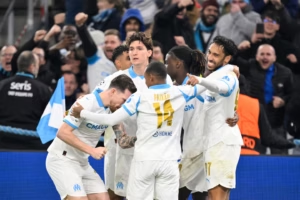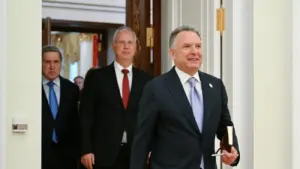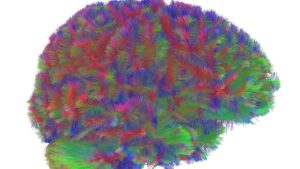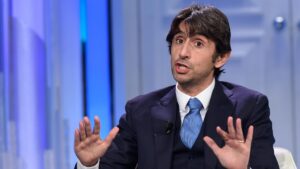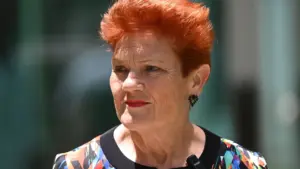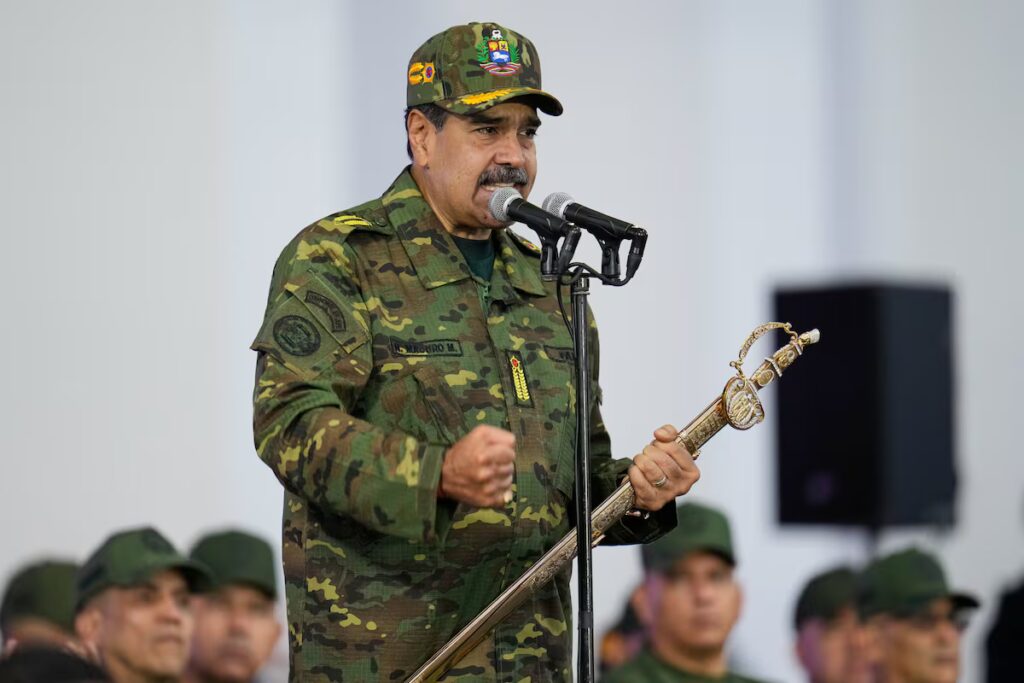
Nicolás Maduro gave the finishing touch to the mobilization called this Tuesday in Caracas, a show of strength with which Chavismo sought to show cohesion in the midst of an escalation of tension with the United States. Dressed in military uniform and flanked by the leaders of his Government and the Bolivarian National Armed Forces, he raised the sword of Simón Bolívar, the central emblem of the Chavista imagination. From below the stage, thousands of followers shouted in unison: “The man of peace is called Nicolás!”
The mobilization – called as part of the bicentenary of the delivery of the sword to the liberator – brought thousands of Venezuelans to the streets, especially public employees, soldiers and police officers, who constitute Maduro’s main support base. The message that Chavismo sought to convey with this march is an internal response – to strengthen the cohesion of the regime – but also an external sign of defiance in the face of advancing pressure from the United States. “The country requires our maximum effort and sacrifice,” Maduro shouted.
The Venezuelan leader – designated by the Donald Trump administration as head of the alleged Cartel of the Suns – harangued the masses and sent a message that makes it clear that the regime’s intention is to resist. “We have the duty to be united! It is forbidden to fail in this decisive moment for the existence of the Republic. There are no excuses for anyone, civil, political, police… If the country asks for it, the country will have our lives, if necessary!”, he underlined.
Chavismo’s street actions contrast with the real popular support it maintains. Analysts estimate that, currently, around 80% of Venezuelans reject Maduro’s regime, compared to 20% who still support Chavismo.
In recent weeks, Trump has taken numerous steps in his pressure campaign against the government of Nicolás Maduro. To the mobilization of a huge naval and air force towards the Caribbean, deploying, among other units, the aircraft carrier USS Gerald R. Ford, the largest in the US fleet: a new operational phase has been announced to intervene indirectly in the region, which could include covert actions and attacks against targets linked to drug trafficking. Faced with this pressure, Chavismo responded by activating all the levers of its internal power. The Venezuelan authorities have declared a state of “maximum preparation”, have mobilized the armed forces, the Bolivarian militias and have strengthened their anti-imperialist rhetoric. Internal repression, as denounced by human rights organizations, has also increased.
In this context, the country’s international isolation occurred with the suspension of flights caused by the warning issued by the United States Federal Aviation Administration (FAA) to “exercise extreme caution” when flying over Venezuela and the southern Caribbean Sea due to “increased military activity” in the area. The measure was interpreted by the Venezuelan regime as part of Washington’s “psychological warfare”. “Marco Rubio’s lies and imbecility will clash with the greater dignity of these people,” said Diosdado Cabello, Interior Minister and de facto number two in the Venezuelan government.
Maduro was weaving the spirit of mobilization with a narrative of resistance. From the stage, surrounded by soldiers and flags, he presented the day as an act of collective defense against what he called “the threats of the empire.” He invited us to read the national symbols – the flag, the sword, the memory of Bolívar – to remember that the country is experiencing “historic aggression” and needs to close ranks.
Evoking Bolívar, he drew a direct parallel between today and the wars of independence. Just as the liberator had to face invasions and conspiracies – Maduro argued -, today Venezuela would be called upon to resist the US offensive. “The American people will win together,” he said.
Venezuela’s president has described Chavismo as the last barrier against Washington’s military deployment in the Caribbean and against sanctions that he says seek to break the government from within. The march, he said, should be read as a show of strength, “a response of unity” to any attempt at external domination, a sort of visual reminder that his political base does not intend to retreat.
